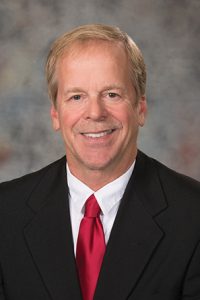Property tax relief increased, school revenue growth capped
A bill that provides additional property tax relief to Nebraskans while limiting increases in the amount of property taxes public school districts may collect received final approval from lawmakers May 25.

LB243, introduced by Albion Sen. Tom Briese, gradually will increase the minimum amount of relief granted under the Property Tax Credit Act from the current $275 million to $475 million by tax year 2028.
The following year, it will grow by the percentage increase in the total assessed value of all real property statewide over the prior year, plus an additional $75 million. The amount then will continue to grow by the percentage increase in statewide valuations.
As amended, LB243 contains provisions of several other bills considered by the Revenue Committee this session, including LB589, sponsored by Briese at the request of Gov. Jim Pillen.
The measure limits the amount by which a school district may increase its property tax request — the amount of taxes requested to be raised through its levy — from one year to the next by 3 percent, with some exceptions based on a district’s growth in student enrollment, the number of limited English proficiency students and the number of students in poverty.
Under the bill’s provisions, a district’s property tax request may not exceed its property tax request authority, which the state Department of Education will calculate annually.
A district may exceed its property tax request authority by an amount approved by a 60 percent majority of voters at a special election. The bill also allows a school board to exceed a district’s property tax request authority by 4 to 7 percent, depending on the number of students enrolled, if at least 70 percent of its members approve.
Among other provisions, LB243 eliminates the 5 percent cap on the school district tax credit’s allowable growth percentage under the Nebraska Property Tax Incentive Act. It also ends Nebraska’s community college area levy after fiscal year 2023-24. Beginning the next year, the state will distribute funds to community colleges to offset the lost property tax revenue.
The state Department of Revenue estimates that the bill will reduce state general fund revenue by $1.8 billion from fiscal year 2024-25 to FY2030-31.
LB243 passed on a vote of 44-0 and takes effect immediately.

